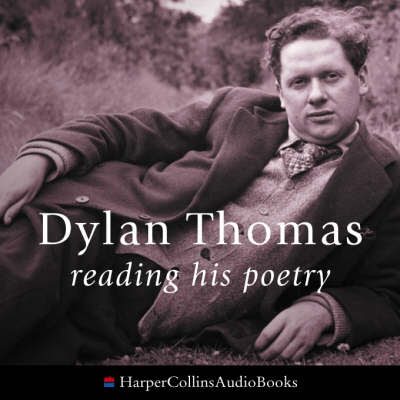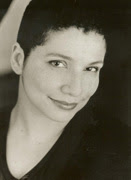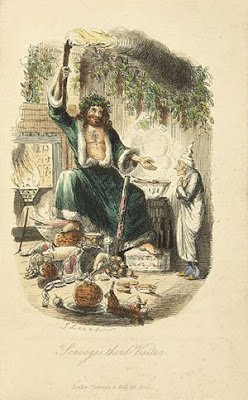Saturday, December 31, 2011
REady, Set, Participate. . .
A Christmas Carol Shares Speaks for Occupy London
Wednesday, December 21, 2011
Passion and Purpose Speeds the Plough Forward
....then there
was a star danced, and under that was I born.
I
had studied a LOT, and I had acted in more Shakespeare than many of the original actors. Also, I had worked both in business and in the world of grant making; I was the only person everyone felt would be capable of leading the new organization, and that’s how I became the Director.”
Saturday, November 26, 2011
Colin Ryan's a Fortunate Man
Saturday, November 12, 2011
Filming Shakespeare ?. . .
After the screening, Plummer, who was also the Executive Producer of the film project, and his director Des McAnuff and their producer Barry Avrich miced up and answered first canned questions to be added to the EPK material for the DVD's distribution and then some audience comments and questions as well.
Throughout the talk-back, Avrich kept insisting on calling the production a FILM, and he called McAnuff a film director. To me, the label denigrated the richness of the hybrid that the production actually seemed to be -- not a film because we are always kept at bay by the fourth wall, absent in the world of film, but not theater despite the fact that we are always aware of and wishing to be closer to the magic of the live stage. The effects, except for some cinematography and editing, are purely theatrical conceits and conventions; though Shakespeare's script may be, as Avrich avowed, cinematic, my experience of this production was not exactly that at all.
Those of you who attended the screening of Richard III a couple weeks ago know exactly what I'm getting at. Olivier enlisted the camera to be his collaborator in telling the story, and he set his production in a purely filmic world. He followed a tradition of film adaptation that has been popularizing Shakespeare since film emerged as a medium.
This Tempest is not that at all. It will, or could, actually popularize the experience of theater going. But if an audience expects to see a film, s/he should rent Julie Taymor's version or Paul Mazursky's or Peter Greenaway's Prospero's Books.
DVD versions of live productions abound these days, especially in the world of Opera. The Met regularly releases taped versions of their best work for viewing around the country, around the world; many of the world's best opera companies are doing the same. Some of these productions remain faithful to the purely staged performances, and others allow themselves more leeway, knowing they are on film. A great production of Don Giovanni, for example, took the DVD viewer into the Vienna woods and enlisted a variety of locations to enhance the story and music. Even that production, however, was not precisely a "film;" it, too, was a hybrid.
What should we call these? Do we have to have a label?
Tuesday, October 18, 2011
A Child's Christmas. . . .

My father Alfred Swett , perhaps the last of the great Victorian iconoclasts, followed his mother’s dream for him and went to Medical School, But along the way, he pursued his own passion: English Literature.
As an English Major at Coe College in Cedar Rapids, Iowa, he not only read omnivorously, but he also committed whole passages of his favorites to memory. He never became a writer or a teacher, but his enthusiasm for the written word was the source of great joy to his eight children.
Where other fathers might read stories to their youngsters at bedtime, Alfred recited the Canturbury Tales and Shakespearean Sonnets. While other fathers might teach his children nursery rhymes, Alfred shared lyric passages from plays and epic poetry.
At holiday season every year, he would quote largely from Dickens’ A Christmas Carol, but his favorite holiday gift was to play his recording of Dylan Thomas reading A Child’s Christmas in Wales. The Thomas memory resonated with him and provided him a vehicle on which to transport us to his own personal small-town holiday world, his own emotional history, which was otherwise difficult for him to embrace.
There’s no such thing as too much of this profoundly personal, entirely universal work. Listen to the excerpt above, from a recording of Dylan Thomas reading, and then hie thee to the West Side Theater for Christmas With Dickens and Dylan, December 8-18, presented by the Actors Shakespeare Company at NJCU in Jersey City.
And may it bring you great joy. . . .
Thursday, October 13, 2011
A Christmas Carol-ing, by Carla Stockton

My Jewish grandchildren will be visiting me over the holidays. We’ll be looking for things to do together, and there might be a few Chanuka activities sponsored by the likes of Chabad Lubavitch, but most of the fun stuff for kids in New York at the holiday season have to do with Christmas, and we’ll be partaking of those things while they’re in the City.
Christmas, as we have learned, is no longer simply a religious holiday. It’s a national holiday, celebrated by Christians and non-Christians alike. Attending tree lightings and Nutcracker performances and the Radio City Christmas Extravaganza have become as traditional as hearing Handel’s Messiah. Or attending a production of A Christmas Carol.
Every season when I was a child, I marched right alongside all my schoolmates into the auditorium on the last day of school before the holiday break, and I watched, rapt with pleasure, as Alistair Sim, as Ebeneezer Scrooge, found his way through his Christmas lesson about charity and the spirit of Christmas. The message was universal, and it had no time constraints: be kind to one another, and find love and happiness or be a scrooge, and die a miserable outcast.
When I reached preteen-hood, I began producing small cuttings of the Dickens classic for my family during our holiday celebrations. My brothers and sisters played various roles, but I always played Scrooge. It felt like our story as much as anyone else’s, especially as we were not wealthy, were a large family and were somewhat out of sync with our very gentile little town in upstate New York.
That’s the thing about A Christmas Carol. It’s all inclusive. Even the most resolutely avowed atheist has to recognize a pertinent message therein, Tiny Tim’s exhortation “God Bless us Everyone,” notwithstanding. It’s as seasonally traditional as gingerbread houses and sugar plum fairies and fun for all children of all ages.
The number of times the tale has been remade and reworked attests to its enormous popularity. It seems that almost every year or so there is a new film, and there is no end to new adaptations for the stage, including the one that will be presented at the West Side Theater as half of A Dickens/Dylan Christmas, directed by Peter Galman, December 8-18.
It’s an uplifting, cathartic experience to see and hear A Christmas Carol. Come one come all.
F.y.i. Here’s a partial list of the film and video productions:
 Movie Versions
Movie Versions
A Christmas Carol (1938) starring Reginald Owen, Gene Lockhart, Kathleen Lockhart, June Lockhart, Leo G. Carroll, and Terry Kilburn. 69 min.
A Christmas Carol (1951) starring Alastair Sim, Meryvn Johns, Michael Hordern and Glyn Dearman 86 min.
Scrooge (1970) starring Albert Finney, Sir Alec Guinness, Edith Evans and Kenneth More. 115 min.
A Christmas Carol (1984) starring George C. Scott, David Warner, Susannah York, Frank Finlay, Edward Woodward and Nigel Davenport. 100 min.
Scrooged (1988) starring Bill Murray, John Forsythe, Karen Allen, Carol Kane, and Bobcat Goldthwait. 111 min.
A Christmas Carol (1999) starring Patrick Stewart, Nick Adams, Desmond Barrit, Charlotte Brittain, Tom Brown, Kenny Doughty, Laura Fraser, Richard E. Grant, Joel Grey, Roger Hammond, Celia Imrie, Ian McNeice, John Mills, and Saskia Reeves. 93 min.
Cartoon Versions
An All Dogs Christmas Carol (1998) 73 min.
Christmas Carol: The Movie. (2001) 77 min.
A Flintstones Christmas Carol (1994) 90 min.
The Jetsons Christmas Carol (1985) 30 min.
Mickey's Christmas Carol (1983) 25 min.
Mr. Magoo's Christmas Carol (1962) 52 min.
The Muppet Christmas Carol (1992) 89 min.
Jim Carrey’s A Christmas Carol (2009)
Monday, October 10, 2011
Denise Hurd is a Cool Aunt!

Denise Hurd’s got some ‘splainin’ to do. . . .
“In fact, I may never be forgiven, ” she says, faux remorse wrinkling her brow. She leans across the table and looks deeply into my eye. “I did the unthinkable. I lost a swordfight.”
She sits back, dumps a sweetener into her coffee and look at me again, this time gleaming with mischievous delight.
Two years ago, her nephew, now 7, attended an Actors Shakespeare Company of New Jersey performance of Henry V, where Denise was playing the vanquished French commander. She laughs. “He has not yet forgiven me for losing that fight. To this day, he still comes up to me and says ‘Denise, Denise . . . no whining, no begging not this. You should have hit him with your sword!’”
“He understood enough about the play – which was especially amazing since I was speaking French and not English – that I had lost my fight. And he understood enough about my work as a fight director to know I gave up that fight. He knows that I am technically a better fighter than my opponent was. And he understood that at five. He got it.”
It’s an accomplishment Denise is particularly proud of. It's what makes her a truly "cool aunt" to her nephews, aged 7 and 4. As far as Denise is concerned, making the story and the action of a play transcend even the language should be of paramount importance to any actor or director. And it’s aspect of her work at the Actors Shakespeare Company of New Jersey that she cherishes most.
“I love that we focus on clarity. We are all about finding clarity of language, yes, but also about clarity of ideas, clarity of story.” She pauses to consider. “Clarity of thought,” she adds.
For Denise, the job of the company is to bring the audience into the world of the play by making the story, the concept, and the emotion present. “I hate concept theater,” she says. “Or rather, I get annoyed when a concept has no connection to the story being told. I wanna know why is that Mercutio a Scot bezerker? Why is no one else acting like that? What is that piece of business that has nothing to do with moving the story forward? Does that costume have anything to do with what is supposed to be happening on stage? I hate theater that is not impelled by oral design, which is not motivated by anything in the oral life of the play. I love that at the ASC we concentrate on being clear!"
It was her sense of clarity in the theater that produced Denise’s first moment of resonance with the world of the stage.
The year Denise was three, her father Hugh Hurd was a member of the company in residence at the Guthrie Theater. Hugh, played Mercutio in their production of Romeo and Juliet, and Denise attended a dress rehearsal. When the action reached Act 3, Scene I, and Mercutio got to his “A plague on both your houses,” speech, Denise suddenly could no longer tolerate the action; she was very upset but not “for the obvious reasons.”
“I didn’t understand that he was dying,” she says. “I was three, and that was just too permanent. But I could see that his friends didn’t like him anymore, and he was being left alone.”
Just as Mercutio was about to draw his last breath, Denise rushed onstage. “It’s all right, Daddy,” she cooed. “I still love you.” She laughs as she remembers. “To say the least, it was a disrupted rehearsal.”
From then on, she was always hyper-sensitive to the stories on stage, hyper-aware of the way in which an audience is moved by the action, and she was destined for her own life in the theater.
Denise says she always assumed she’d work in the theater. “Growing up I thought every grown-up was involved in the theater. I recognized that everyone didn’t act, of course, but I really thought all adults worked in the theater. . ‘cause that is what all the grownups around me did.” I never thought I wouldn’t work in the theater.
Denise grew up around theater folk. In addition to her father Hugh, who died in 1995, her mother Merlyn Purdy Hurd, currently a successful neurotherapist, was also an actor. More than just a legacy, the theater was a natural progression . . . “For all of us.”
Denise’s sister Adrienne Hurd is a dancer and choreographer, currently a teacher at the Alvin Ailey Dance School, and her other sister is Michelle Hurd, veteran television actor and star of The Glades. It’s the family business.
Like her sisters, Denise, began her studies at St. Anne’s High School in Brooklyn Heights, which, she says, had and still has a really good theater program. Her drama teacher there was Maurice Blanc, now deceased, whom she recognized even then as a “really great theatrical innovator. He was really great at getting great performances out of kids.” Blanc eschewed the more standard high school fare and challenged his students with Three Penny Opera, Williams, Odets, and Shakespeare.
From there Denise went on to Yale University to complete her undergraduate studies and was a theater and history major, participating as an actor at the Yale Dramat. After a year at NYU’s Tisch School of the Arts Drama program, she left academia behind.
Her interest in fighting began in her senior year of high school, when she was briefly on the fencing team at St Anne’s. “In those days, for some obscurely anti-feminist reason, they only allowed women to do the foil.” But she found it invigorating nonetheless. “There’s something really empowering about brandishing a sword,” she demurs.
At Yale, she briefly joined the fencing team but soon realized “Oh, I could have a life” and left the team. “But because I was on team ever so briefly, I found my way into choreography.”
“I was doing Cyrano at Yale, and the director said, ‘Oh, you were on the fencing team. Could you choreograph the fight scenes?’ And I was too naïve to know what I didn’t know, so I said yes.”
It turned out to be a life-changing experience. “The guy playing Cyrano was left-handed, which I’m not; and the guy playing Le Vicomte de Valvert – I called him Velveeta because he’s so cheesy – was very tall, right-handed and couldn’t fence. So I had to learn to fence left-handed and teach someone who had minimal body skills and who was way taller than I how to fence. What was good was that I was forced to learn to solve the kind of problems I’d need to solve as a choreographer. I had to keep the actors safe, or at least to make the situation onstage less than dangerous. It was a great education.”
Most of all, Denise hastens to add, she had to learn how to change her mindset from “fighting to the touch” to conveying a story. “I didn’t call myself a choreographer yet. I was an actor, but I wanted to do more with stage combat. So I went on to get training in Stage Combat to be better stage fighter . . . and to preserve myself. I had gotten kicked in the head in a children’s show and I needed to learn how to protect myself."
Along the way, Denise became a certified actor combatant in unarmed confrontations, in broadsword, dagger and rapier fights. She teaches Acting and Introduction to the Theater at City College, and she still loves her weapons work at ASCNJ. “It’s fun to run around with the sword,” she laughs.
But she won’t be choreographing Macbeth, the next mainstage production that will feature her work at the ASC. From March 16-April 1, 2012, she’ll be playing Lady Macbeth, and the production will feature a small cast of actors playing multiple roles.
Denise believes that she will confine herself to the role of actor in this one and will let someone else choreograph the fights. “I don’t think that I could do both. I think I would go crazy!”
She’s not sure she’ll invite her nephews to see Macbeth, however. To see someone they love being so very evil might just be too painful for the sensitive youngsters, and Denise is absolutely certain that the story will be so clearly told that it will be entirely real.
Saturday, October 8, 2011
A winter's Tale, by Dylan Thomas
Thursday, October 6, 2011
Food for Thought?
Wednesday, October 5, 2011
Some Scroogey faves. . .
Friday, September 30, 2011







